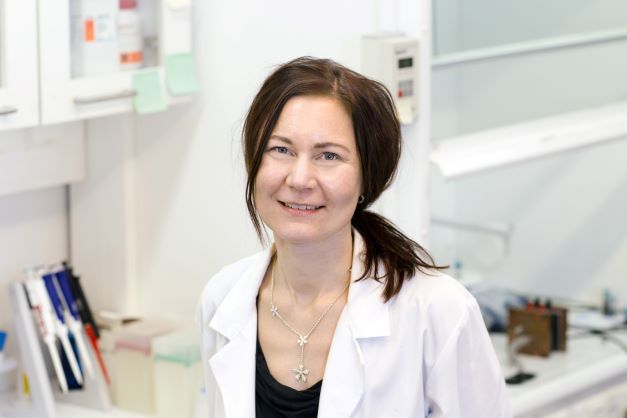Safer and more efficient rechargeable lithium batteries – Aalto is taking part in new corporate cooperation projects

Aalto University researchers are taking part in two new cooperative projects to develop materials and manufacturing methods for lithium batteries for the future. The goal is to improve the efficiency and safety of the batteries, and to reduce the carbon footprint of their manufacture.
Rechargeable lithium batteries are a key enabling technology in electric transport, in the storage of renewable energy and in consumer electronics. It is estimated that demand for batteries will grow at the rate of 25 per cent a year, as the EU expects to have 30 million electric cars on its roads by 2030.
‘The batteries use raw materials with a limited supply, and these need to be used as efficiently as possible. It is also important to build a responsible and sustainable battery industry in Europe, says Aalto University Professor Tanja Kallio.
NextGenBat project boosts the development of solid-state batteries
The NextGenBat-project project led by Aalto University is developing materials and manufacturing methods for solid-state lithium batteries. Solid-state batteries are a developing technology which is of special interest to the electric car industry. Solid-state rechargeable batteries have a higher energy density and have better fire safety than wet cell batteries. The project especially focuses on the study of pulsed laser (PLD) and atomic layer (ALD) thin film deposition processes which are being pioneered by Finnish companies.
Participants in the project include the University of Tampere and VTT Technical Research Centre of Finland Ltd as well as the companies Pulsedeon Ltd, Beneq, and Tervakoski. International cooperation is taking place with companies and research institutes from Germany, France, Italy, and the USA. The project gets funding from Business Finland.
HiQ-CARB introduces more environmentally friendly carbon materials
Aalto is a research partner in a project headed by the Fraunhofer Institute for Silicate Research (ISC) which aims to provide new carbon materials with superior performance and a low carbon footprint for future green batteries in Europe. Carbon plays a critical role in improving the electronic conductivity of battery cathodes.
The project team of HiQ-CARB includes companies Arkema (France), Custom Cells (Germany) and Orion Engineered Carbons (Germany). Fraunhofer Institute for Silicate Research ISC, Aalto University and the University of Bordeaux are involved in the scientific part of evaluation and testing of the new material combinations itselves and the battery cells made from them. The HiQ-CARB project receives EU funding from EIT Raw Materials to scale up and validate these important battery materials.
More information
HiQ-CARB press release on Fraunhofer Institute for Silicate Research ISC's webpage

Read more news

Significant donation to boost pavement engineering research and education
Companies and associations in the field have donated €400,000 to the School of Engineering.
‘Mesoscale’ swimmers could pave way for drug delivery robots inside the body
Researchers have discovered how tiny organisms break the laws of physics to swim faster — such secrets of mesoscale physics and fluid dynamics can offer entirely new pathways for engineering and medicine.
Design strengthens industrial competitiveness – human-centered factory work at the core
Factory work is undergoing a transformation: new technologies and artificial intelligence are changing the content and roles of work. Aalto University’s Department of Design is studying this change from a human-centered perspective in the HiFive project.






